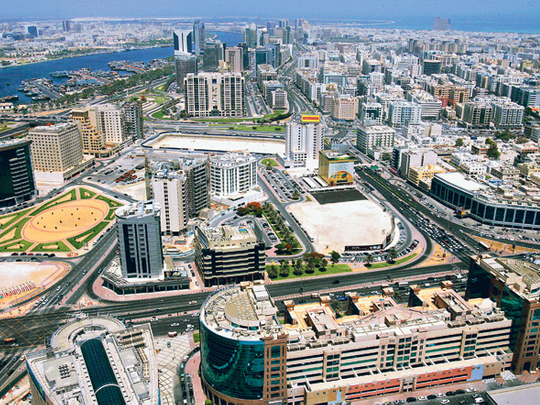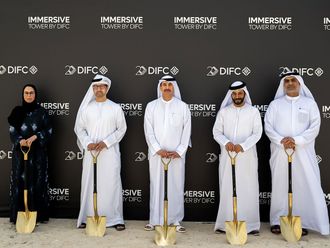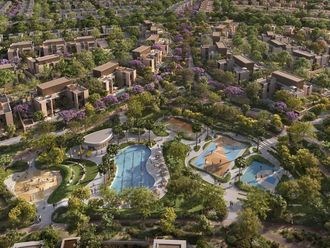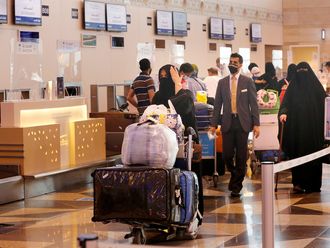
Dubai: Mid-tier freehold developments in Dubai are seeing benefits from a wide-ranging property consolidation drive in Ajman.
This is how it works: a developer or group of developers with stalled projects in Ajman would ask investors to transfer their interests to an on-going, mid-priced development in Dubai nearing completion.
These developers initially tried to get such swaps confined to projects in Ajman, but it was soon obvious there are not that many of them around. So, Dubai was the next choice, and investors are not complaining. They get access to property in Dubai that was, theoretically, out of their reach price-wise during the boom times.
Given the local real estate sector has yet to fully recover from the correction, this has indeed been a timely boost for the market. "Mid-priced locations such as Dubai Silicon Oasis are receiving a lot of interest as a preferred location for this consolidation process," said Mahendra Singh, who runs a real estate brokerage firm. "Properties there are going for Dh500 to Dh600 a square foot or thereabouts and we are talking near-completion projects.
Too early
"Now, these prices are close to what these investors bought their original properties in Ajman during the pre-correction phase. If they had already made some installments towards the properties in Ajman, these would now be reflected in the pricing they get on the Dubai deal. After all, the heartburn these investors went through in 2009 over their funds stuck in projects going nowhere, they are within sight of getting a property in Dubai."
But Matthew Green, head of research and consultancy UAE at CB Richard Ellis Middle East, is unwilling to go that far and cite any single development as being the main beneficiary. "It is really too early to assess the impact on Dubai and any specific development in particular," he said. "The process is a simple transfer of property ownership between developer and investor. So in real terms this will have minimal effect on market dynamics, unless of course any positive trend emerges with regard to increased end-user involvement as a result of these transfers."
But it's not just investors who have reason to be relieved at the turn of events. By encouraging such swaps, Ajman's developers get to shift some of their liabilities off their books.
Moreover, by finding a counterpart in Dubai to take on the buyers and sealing the deal, these developers ensure a fair compensation.
But the switch is not an instantaneous one and due processes have to be followed such as getting official approval from the Ajman Real Estate Regulatory Agency (ARRA). "Let's be clear about this — not every developer who had a project in Ajman can try to get investors to switch to Dubai," says James Varghese, a real estate investment consultant with interests in the northern emirate.
"They have to inform the concerned authorities in Ajman that the project has been scrapped, certain guidelines have to be adhered to. It's good for the investors as transparency is ensured."
As for the Dubai developers, it means they end up getting committed buyers where none existed before. As is clear, each chain in the link gets reinforced by the consolidation process.
"For instance, if the investor gets a deal at Dh500 on a Dh600-Dh700 a square foot property in Dubai and we assume Dh250-Dh300 a square foot is the cost of development, there's still room for profit margins to be made," Singh said. "Deals will always be structured in a fashion to ensure margins for both sets of developers."
Again, Green adds a caveat: "One of the main concerns investors in Dubai have voiced, has been the fairness of compensation returns from developers, specifically receiving the perceived value of their property. Too often it seems that developers are offloading unwanted stock to investors, rather than offering a more comparable product for transfer."
For those buyers in Ajman who now see this as a way out, it's better than nothing.
Dubai Ajman's property sector's prospects are certainly not blowing hot these days. Of the many "cities" — some featuring more than 100 apartment buildings apiece — announced between 2006 and 2008 across the emirate, what will actually get built has been whittled down considerably. Who will build what and how many is yet to be clear.
Early this year, some of these developers even decided to come together and pool resources on select projects rather than do their own thing.
That's as far as the freehold market goes, but it's not exactly an upbeat scenario on rentals as well. As in Sharjah, many of Ajman's residents have made use of the lower rents in Dubai to seek a change in location and be closer to their workplace.
"The concentration of unoccupied properties is mainly within the city centre, with a smaller percentage of vacancies close to Ajman Free Zone and the surrounding areas," said a new report on the northern emirates released by Asteco.
However, "those properties on the Corniche, or with a sea view, continue to attract interest from tenants working in Ajman."
The trends in Sharjah during the first quarter were not that far removed from Ajman's situation. "The Sharjah residential market continues to experience a gradual drop in rental rates with a significant number of tenants relocating closer to their workplace," the Asteco report added.
"This decline is exacerbated by the number of vacant units available in the market, making properties more competitive, combined with a lack of quality accommodation — despite the fact that a number of new towers have been constructed over the last few years."
With prospects for the second quarter likely to remain muted, it is bound to be a long summer for the northern emirates' real estate space.
Noticeable changes
- The residential leasing market continues to see a decrease in rental rates with Umm Al Quwain and Fujairah recording the smallest decreases of 4 per cent on average.
- There have been no noticeable price changes for studio apartments in Umm Al Quwain and Fujairah.
- Ajman and Ras Al Khaimah registered the largest decrease with rental rates dropping by seven per cent.
- The largest decrease per bedroom type was recorded in Sharjah with one-bedroom apartments contracting by nine per cent.












